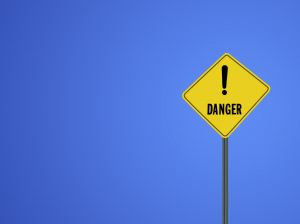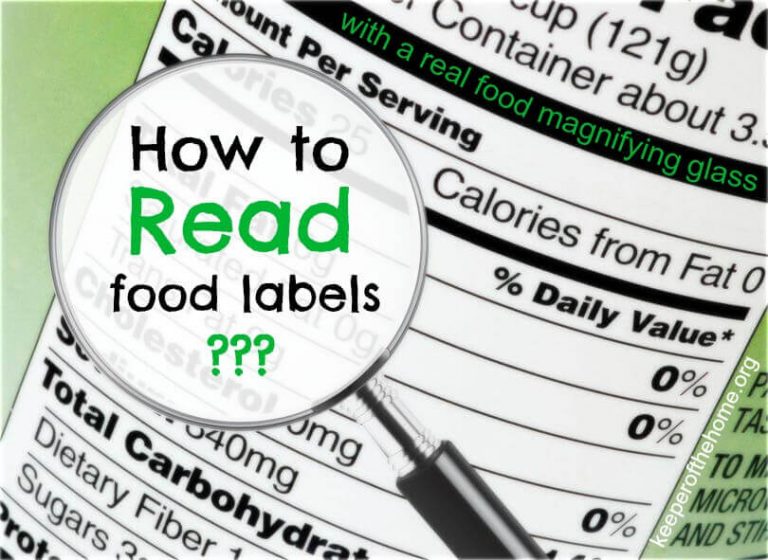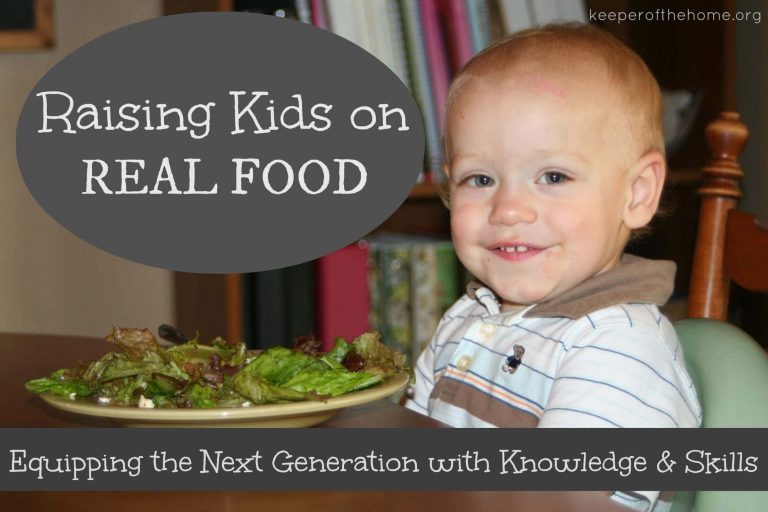Living with PCOS- Things to Avoid continued

Let's continue on with our look at things to be avoided when dealing with PCOS and it's symptoms (and I know that last time I said there were 10 in total, but I realized one of them was redundant, so I guess it's only 9 now. 🙂
6) Vegetarianism/ Low-Fat Diets
There are a few really good reasons to keep up your intake of both animal products and good fat sources in order to promote a healthy reproductive system:
- Being underweight can seriously compromise your cycle and fertility (and eating both vegetarian or low-fat can both contribute to having a BMI that is too low)
- There is growing evidence that low-fat dairy and diets in general contribute to decreased fertility
- Vitamin A is an incredibly important nutrient when it comes to healthy fertility and pregnancy (more on this to come), but despite all the hype about receiving it adequately through plant sources, it's most usable form is found in (you guessed it) animal products and full fat dairy! Check out this Diet for Pregnant and Nursing Mothers, put together based on the traditional, cultural diets for women during their child-bearing years. These would be great suggestions to take to heart!
- These diets include insufficient (but absolutely necessary) dietary components such as good cholesterol, Vitamin D and essential fatty acids (all important for reproduction). See this article for more on how diet affects women's reproductive health.
7) Conventional Tampons and Pads
Many women may have heard of more natural or reusable (cloth) products for women, but the reason is most often either for environmental concern, frugality, or comfort. What is unknown to many women is that both tampons and pads contain chemicals that are harmful to our bodies, including to our reproductive systems and also our level of fertility.
I mentioned last time that we need to be aware of environmental estrogens and do our best to avoid them, many of which are harmful chemicals found in food, beauty products and household products. So let's just add tampons and pads to the list of products containing unwanted toxins, which is particularly concerning when you consider the close and prolonged contact these products have with vulnerable parts of our body. Most (except for the natural brands) contain high levels of chlorine, from bleaching. As well,
Chemicals in tampons include dioxin caused by bleached rayon, aluminium, alcohol, and additives which also produce dioxin. (source)
Dioxin is a particularly toxic chemical, quite possibly one of the most toxic out there, and any amount introduced to our bodies may be harmful. For a really good overview and a wealth of links on the topic, see this site. As well, there are links to reproductive and hormonal disorders specifically, such as this article on Tampons and Endometriosis, and this one on Dioxin and Male Sterility, and this EWG article which mentions the possible link between chemicals and reproductive system disruptions..
For more on the topic of women's products and alternatives, as well as some more links to safety and health issues, see this previous post of mine.
8) Trans Fatty Acids
I think it's safe to say that we've all heard that we should avoid trans fatty acids. So why should those with PCOS avoid them in particular? Two basic reasons:
- They've been connected to a decrease in the response of blood cells to insulin, which is not good news for those with diabetes or any other insulin related disorder. I mentioned last time that those with PCOS struggle to balance blood sugar and maintain correct insulin levels, so eating trans fats will only exacerbate this problem. (Sources- Here, here, and here)
- They also interfere with the conversion of omega 3 fatty acids, and can promote further deficiency of these all important fats, which most of us already struggle with as it is. As I mentioned above, EFA's are important for a healthy reproductive system, as are all good fats. (Again, you can find more about this topic deep in the midst of this detailed interview of fats expert, Mary Enig, PhD).
As trans fat labeling laws are not yet ideal yet, don't rely on the packaging to tell you whether or not they are present in a food. Look in the ingredients for the words "hydrogenated" or "partially hydrogenated" or even "shortening" before deciding to indulge.
9) Toxins in Food
Lastly, there is yet another area of toxic chemical exposure to examine, and that is sadly in our food. Here are a few ways that food additives, pesticides and contaminating chemicals have an effect on PCOS and hormone balance:
BPA– Found in canned foods (through the inner lining of the can). Increases insulin resistance, mimics estrogen, and is linked to recurrent miscarriages (source). Here are some tips for avoiding BPA.
MSG/Aspartame– MSG is found is the great majority of packaged foods (see this list of names it goes by), and Aspartame is in chewing gum (nearly every brand!), diet sodas and other beverages, "sugar-free" treats, some candies, and more. "What causes PCOS… Excess intake of substances such as excitatory amino
acids, found in many food additives like MSG, aspartame,
glutamate, etc. that affect the pituitary regulation of
the ovary cycles" (source). As well, MSG intake greatly reduces the success of achieving pregnancy (source).
Pesticides– Many (DDT,
vinclozolin, endosulfan, toxaphene, dieldrin, and DBCP, to name a few) have hormone-like activity (source). Pesticides in general are thought to be endocrine disrupters (disrupting the work of the thyroid gland, which governs hormones), including Monsanto's Roundup in particular (a very common pesticide). One study of 3 common farm fertilizers specifically showed endocrine/thyroid disruption. See my post on knowing what to buy organic, and also on washing your produce.
Where to go from here
Now that we've looked at some of the Don'ts of living with PCOS, I'm eager to move on to the Do's! In the upcoming weeks, I'll begin to take a look at important dietary changes and improvements to make, supplements to consider, as well as lifestyle tools that can have a positive impact.
For those who have been following this series so far, I hope that you're beginning to be excited (and not discouraged) as we look at the information that is out there. Though there is work to be done, and things to be changed, I think it is hopeful to realize that improved health is not beyond our grasp. I don't know about you, but I love to learn that there are actually things that I can do, and that I don't have to live in passive acceptance of the status quo when it comes to my health!
Which things do you find the hardest to avoid? What do you think about these suggestions? Thoughts and/or suggestions from those who are already trying to put these things into practice?





I was just diagnosed with PCOS last week. I have found that trying to eliminate almost any of these things is very hard. I have been working hard on eliminating the artificial sweeteners, but they sneak into almost anything. I think one of the harder things for me to eliminate will be the tampons/pads. I work outside of the home, so it is tougher to do re-useable pads. I will have to try switching to the all natural products sold at my health food store.
Thanks for all the great information. I look forward to continue to read and learn about this condition and hopefully will one day have it under control enough to concieve a child!
I love full fat dairy :o)
The hardest for me would be the tampons/pads. I mostly use pads which to me are the lesser of two evils because atleast they are more exterior to the body then tampons. It really isn’t much different then cloth diapers though. I guess because my cycles are only 3-4 days it’s one of those things I let go.
I avoid pretty much everything else when I can. I do chew trident gum which I know has artificial sweetners in it….but that’s another pleasure in life I just swallow….literally :o)
I look forward to further posts on PCOS. What I found that has helped me SO much with my PCOS is balancing my carb and protien intake. I loose weight and maintain my insulin resisitance very well this way.
I don’t have PCOS but I found this interesting anyways. For a long time I used pads by a company called Natracare that I really liked (especially their ones with wings…the other ones I found bulky) and they are mostly organic and are all natural. They even have organic tampons. Once I started using cloth diapers for my child though I switched to cloth pads and love it. Just thought I would share about a good source for non-cloth pads though…although its more money. They just started carrying them at my local grocery store! I was surprised.
Although like I said I don’t avoid these things mentioned due to PCOS, I do pretty much practice all of that as a means for good health.
I would say probably for me the hardest thing to avoid in all entirety would be pesticides. Unfourtunately with food prices getting higher and higher its harder and harder to be on budget buying as natural and organic as possible. I try to do my best and not worry about the rest, realizing that something is better than nothing. I try to get the things thought to be most contaminated organic, and I try to buy local and in season.
I do look forward to it!! YAY! I am so bummed, but there is just no way that we can have tons of fresh fruit and vegs and organic, too. Pesticides SUCK! It is out of the question for us. No matter how much people say you can afford it, we can not. And it’s a bummer, but it’s better than Oreo’s, right???
Oh Amanda, I’m so sorry. I’m so glad you’ve joined us here!
Mrs. M, the insulin balancing is so important. I’m eager to get to that more!
Nola, I’m with you on the prices!
Kellie, yep, non-organic produce is better than lots of other things! Check out the link above about washing your produce- it gives lots of suggestions for working with conventional produce when it’s all you can buy! 🙂
Hello there,
Thanks for writing about PCOS. I was diagnosed about a month ago. I just started having symptoms in March, after I lost a baby to ectopic pregnancy. My doctor immediately put me on bc which I am pretty against, but my husband wants me to be healthy so he insists I follow through with it. I have been deeply heartbroken with my diagnosis because of all the drugs my doctor was telling me I would have to take and how high risk my pregnancies would likely be, etc. I have longed to be a mother more than anything, and the doctor pretty much said that it would be very difficult. I have really changed my diet around substantually. I have also started exercising daily (trying very hard anyways.) It was so encouraging to stumble upon this site. Thank you.
Thanks for taking on this topic. Can’t wait to read your list of do’s! The BPA in cans thing really confuses me. If you don’t heat the can, is it okay? I never knew BPA was in the lining of cans until a few weeks ago when I was reading about BPA being banned in baby bottles (in Canada). As for PCOS, here are two links I’ve found very helpful…. A quiz to see if you actually have a hormonal imbalance: http://www.womentowomen.com/healthassessment/default.aspx and a pretty good intro article for those of us new to the topic: http://www.womentowomen.com/insulinresistance/pcos.aspx
I love your blog!
I never thought about all of the chemicals in tampons and pads. Makes total sense. Thanks!
For #7 you refer to a dioxin website that says that the best way to avoid dioxin is to adopt a vegan lifestyle. This contradicts with #6. I’m a bit confused. -Liz
Hi Liz,
I was referring to that web site more for it’s other information on dioxin, but I can see how it’s statement is confusing when compared with the rest of what I am saying.
The statements about dioxin levels in animal products are why it is so important to purchase these foods only from reliable sources, providing naturally raised, pastured/free range animals. Organic products are also valuable for avoiding these toxins, although not all organic products have as high of standards as those raised on smaller farms where you are able to really inquire about how the animals are raised.
Actually both my PCP and my Ob/Gyn state that vegetarianism is one of the best lifestyles to adopt with PCOS… For one healthy weight management and for two hormonal balance.
I switched to a vegetarian lifestyle because of my PCOS and Diverticulosis based on the advice of many specialists. It has helped almost every aspect of PCOS, especially the cramping, weight gain and hormone levels.
Aside from sites and books created by non-physicians, you should speak with a real researcher, not people making assumptions.
I do not take any medications. Vegetarianism was one of the best choices I have ever made for my health.
I know I’m reading this about 2 years late, but I have to agree with the most recent comment (from Lisa). I was diagnosed with “PCOS” (I hesitate to call it that) in my teens, and I had a healthy BMI of 22. I was not a vegetarian at the time. I was also far from the “typical” PCOS patient as my OB/GYN described her. I became a vegetarian the following year. I didn’t lose a single pound. I ultimately went vegan (albeit, for a very short time before going back to dairy), and still, I didn’t lose a pound. I was and still am very active (I participate in several endurance sports), and exercise several times a week. I’ve never tried to maintain a “low fat” diet, but I avoid full-fat dairy like the plague. Although we need fat in our diets to maintain normal functioning, we do NOT need animal fats – we need unsaturated fats. Animal fats are highly saturated (in different ways than saturated plant fat), and will clog those arteries quickly! So, I love me some skim (usually no-sugar-added chocolate) milk, and I indulge in olive oil or fresh avocado every day. Still, I have lost a whopping total of ZERO pounds. With just a few exceptions, I avoid added sugar, added salt, and processed food like it’s evil. I eat mostly fresh produce, whole grains, eggs, beans, etc.
I’ve experienced almost total relief from my PCOS in the years that I’ve been a vegetarian! I hesitate to even call it PCOS….after my first OB/GYN diagnosed me, handed me a prescription for mega-dose BC, and told me I would most definitely be back for fertility treatments some day, I got fed up. I did take the BC for about 18 months – about 6 months on the mega-dose of a hormone-heavy pill, then about a year on a newer, “more efficient” pill. When I got sick of the BC, I transferred to a new OB/GYN. I wasn’t just feeling like a raving, angry lunatic (which I was), I started growing VERY dark, thicker-than-usual hair on my arms and legs. I also gained a full pants size, and would often spend days at a time laying on the couch eating saltine crackers. Yuck! So, I started seeing a wonderful Christian OB/GYN, who decided I did NOT need the pill anymore. Furthermore, he decided I might not have PCOS after all; I was exposed to substantial amounts of BPA just months before I developed a problem with PCOS. Now, I rarely have noticeable problems with cysts (maybe once a year, if that). Anyway, I am so glad I found your blog! I am continually looking for ways to cut chemicals out of my daily routine, for numerous reasons. Your no ‘poo series is especially inspiring!!
I have pros and so do a bunch of my friends. I guess some of us were lucky, we did not have problems getting pregnant. I was told to eat a metterrainian diet and I do we’ll with protein and veggies. I try and watch the sweets. Exercise seems to be the most important thing with me helps with my sugar and moods. The moods and hormones seem the worse and I am on meterformin but do need it so I am not crazy person. See how your body reacts to each thing. I do agree with some stuff but I can’t go vegetarian, I need the protein to work best and while pregnant I lost 25 lbs with each kid. My bidy actually worked while pregnant. Who knew. Take care of yourselfs.